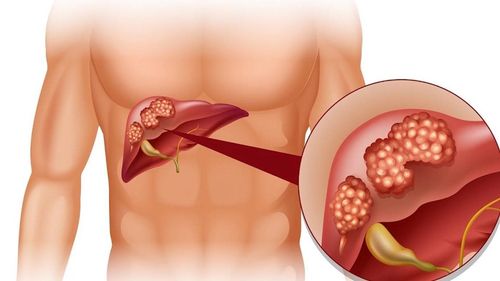This is an automatically translated article.
The article was professionally consulted with Specialist Doctor I Le Nguyen Hong Tram - Gastroenterologist - Department of Medical Examination & Internal Medicine - Vinmec Nha Trang International General Hospital.1. Overview of Irritable Bowel Syndrome in Adults
Irritable bowel syndrome (IBS) is a common functional disorder of the colon. Adults with irritable bowel syndrome often have recurrent episodes, but when they go to the doctor, perform medical tests, they do not see any physical damage on anatomy, histology as well as biochemistry in the patient. intestinal tract.IBS is common in young and middle-aged adults, the incidence peaks between 18-30 years of age and decreases after the age of 50. Females have more irritable bowel syndrome than males with a ratio of 2: 1. . People with high education, pupils, students, officials... have a higher rate of disease than farmers and workers; People living in urban areas also get sick more often than in rural areas...
2. Causes of Irritable Bowel Syndrome in Adults
The pathogenesis of irritable bowel syndrome is still not clear, but the disease can be related to many factors such as:Intestinal infections Psychological disorders Genetic factors Diet Calendar Drug use Endocrine status The above factors will cause the development of abnormal bowel movements, associated with high reactivity of intestinal motility and increased intestinal sensitivity. Specifically when you have irritable bowel syndrome:
The contractions are stronger and last longer than usual causing gas, bloating and diarrhea. When the intestines have weak contractions, the movement of food is slow, causing the stools to be hard and dry. Only a small number of adults with irritable bowel syndrome have severe signs and symptoms. Some people can manage their symptoms by adjusting their diet, lifestyle, and stress management. Others will need to take medication and seek the support and advice of a doctor.

3. Symptoms of Irritable Bowel Syndrome in Adults
Although they share the same uncomfortable signs and symptoms, unlike ulcerative colitis and Crohn's disease, which are typical forms of inflammatory bowel disease, irritable bowel syndrome does not cause damage to bowel tissue or increase the risk of colon cancer. rectum. Although not life-threatening, they greatly affect the quality of life of patients.Common manifestations of IBS include:
Abdominal pain: appearing mainly and most commonly, usually pain in the lower abdomen and left iliac fossa after eating. Pain is relieved after defecation or defecation. Loose stools: Passing 3-5 times a day, loose or broken stools, may contain mucus but no blood. Constipation: Passing solid stools, small amount, may be mixed with mucus and appear alternating with liquid defecation. Abdominal distention: Usually severe during the day, especially after noon, gradually decreasing at night after sleeping. The upper gastrointestinal symptoms often recur again and again, if the patient sees more serious symptoms, they need to be alert and see a doctor immediately for timely examination and treatment. Warning signs include:
Rectal bleeding Blood in the stools or black stools Abdominal pain that gets worse and occurs at night Rapid weight loss Abdominal palpation Abnormal mass Anemia symptoms such as: Skin pale, or dizzy... For most cases, adult IBS is a chronic condition, although symptoms can be severe, improve or even improve. completely lost. Because the causes of irritable bowel syndrome are still unclear, treatment focuses on relieving symptoms so you can lead as normal a life as possible.

4. Treatment and prevention of irritable bowel syndrome in adults
In most cases, you can reduce and prevent the signs and symptoms of mild irritable bowel syndrome by adjusting your lifestyle and eating habits.In order to effectively treat and prevent irritable bowel syndrome, patients need to do a few things well:
Avoid stress, overthinking, and anxiety. Eat on time, eat in moderation, avoid overeating. Abstain from fishy, cold, hot spicy food, low in fat, moderate protein. Abstain from gas-producing foods such as carbonated drinks, some vegetables (cabbage, broccoli, cauliflower, raw fruit...) Stop eating gluten-containing foods such as wheat, barley, buckwheat . Limit foods containing fermentable sugars such as fructose, lactose, fructan and some other sugars (FODMAPs). They are often found in some grains, vegetables, fruits and dairy foods. Limit alcohol and coffee intake. If the disease is moderate or severe, the patient will need to do more than just make lifestyle changes. Visit your doctor for a face-to-face examination and consultation. If the condition is severe, your doctor may prescribe medication to treat it.
Vinmec International General Hospital is one of the hospitals that not only ensures professional quality with a team of doctors, modern equipment and technology, but also stands out for its examination, consulting and service services. comprehensive and professional medical treatment; civilized, polite, safe and sterile medical examination and treatment space.
Please dial HOTLINE for more information or register for an appointment HERE. Download MyVinmec app to make appointments faster and to manage your bookings easily.














